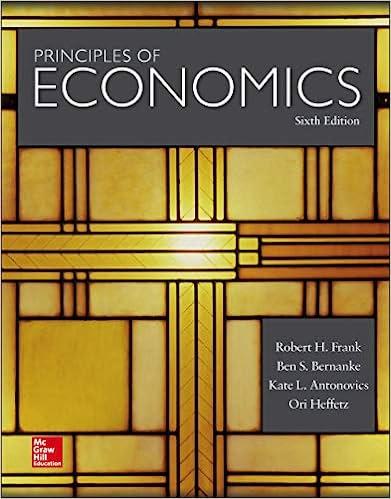Question
Averting global depression Projections of the potential impact of the Covid-19 shock on economies around the world for the year 2020 vary widely. However, there
Averting global depression
Projections of the potential impact of the Covid-19 shock on economies around the world for the year 2020 vary widely. However, there is broad agreement that the global economy will contract, given the sudden stop to large swathes of activity, and the resulting income loss in the manufacturing and services sectors across most advanced countries and China. This is combined with the adverse effects on financial markets, consumption (through both income and wealth effects), investment confidence, international trade and commodity prices.
For the governments of advanced countries, who are now scrambling to contain the economic impact of the Covid-19 pandemic, the challenge is compounded by persistent fragilities surrounding highly speculative financial positions - in particular, the already unsustainable debt burdens associated with highly leveraged corporate loans.
These loans have been built up over the last decade of easy money and against a backdrop of heavily under-regulated 'high-tech-cum-gig economies', as well as deeply ingrained income inequalities. In addition, the avalanche of cheap credit since 2008 has also spilled over to developing countries, creating new financial vulnerabilities and undermining their debt sustainability.
In the past days, a series of stimulus packages - unprecedented in both scale and scope - have been announced by the major developed economies and China, to extenuate the mounting economic damage and to respond to the health crisis. Aside from financial injections to keep the banking and corporate balance sheets on relatively stable footing, the critical measures to avert contractions of economic activity include government spending (particularly on healthcare), extended unemployment benefits and cash transfers.
The details still need to be carefully examined, but some broad estimates can be made about how this will likely translate into additional demand and, consequently, national income in each economy. Employing our Global Policy Model, we estimate a boost to the national incomes of advanced economies and China of about $1.4 trillion in 2020, which is substantially smaller than the headline values of the packages. This, no doubt, will have a positive impact, not only on their own economies, but the world economy as well.
Although this will, in all likelihood, not prevent a global contraction this year, it should (hopefully) avert the recession turning into a prolonged depression. It should also contribute to stemming the fall in the prices of both financial assets and commodities, and it will partially alleviate the negative growth impact from the crisis on developing countries.
Developing countries, however, face distinct pressures and constraints that make it significantly harder for them to enact effective stimulus, without facing binding foreign exchange constraints; and as these countries do not issue international reserve currencies, they can only obtain them through exports or the sales of their reserves. What is more, exports themselves require significant imports of equipment, intermediate goods, know-how and financial business services.
Finally, the financial turmoil from this crisis has already triggered sharp currency devaluations in developing countries, which makes servicing their debts and paying for necessary imports for their industrial activity far more onerous.
Source: adapted from United Nations Conference on Trade and Development (UNCTAD). 2020. The Covid-19 Shock to Developing Countries. [Online] Available from:
https://unctad.org/en/PublicationsLibrary/gds_tdr2019_covid2_en.pdf [Accessed: 2020-04-10].
With the anticipation of an inevitable global recession, there is a need to change the way business is done internationally, in order to give the global economy a chance to survive the effects of the COVID-19 pandemic. Economic integration initiatives are already in existence. However, the global economy needs to act in a more unified way.How can i write an essay that addresses the following:
Explaining the existing economic integrations and what they mean. Giving examples of the successful ones, and how they can be adopted to help resuscitate the global economy.
Explaining the tariffs that exist and how they affect trade. Also explain which ones should be eliminated.
Making special reference to the South African economy.
Making sure to show your understanding of non-tariff trade barriers, in order to save economies - especially those of the developing world.
Step by Step Solution
There are 3 Steps involved in it
Step: 1

Get Instant Access to Expert-Tailored Solutions
See step-by-step solutions with expert insights and AI powered tools for academic success
Step: 2

Step: 3

Ace Your Homework with AI
Get the answers you need in no time with our AI-driven, step-by-step assistance
Get Started


